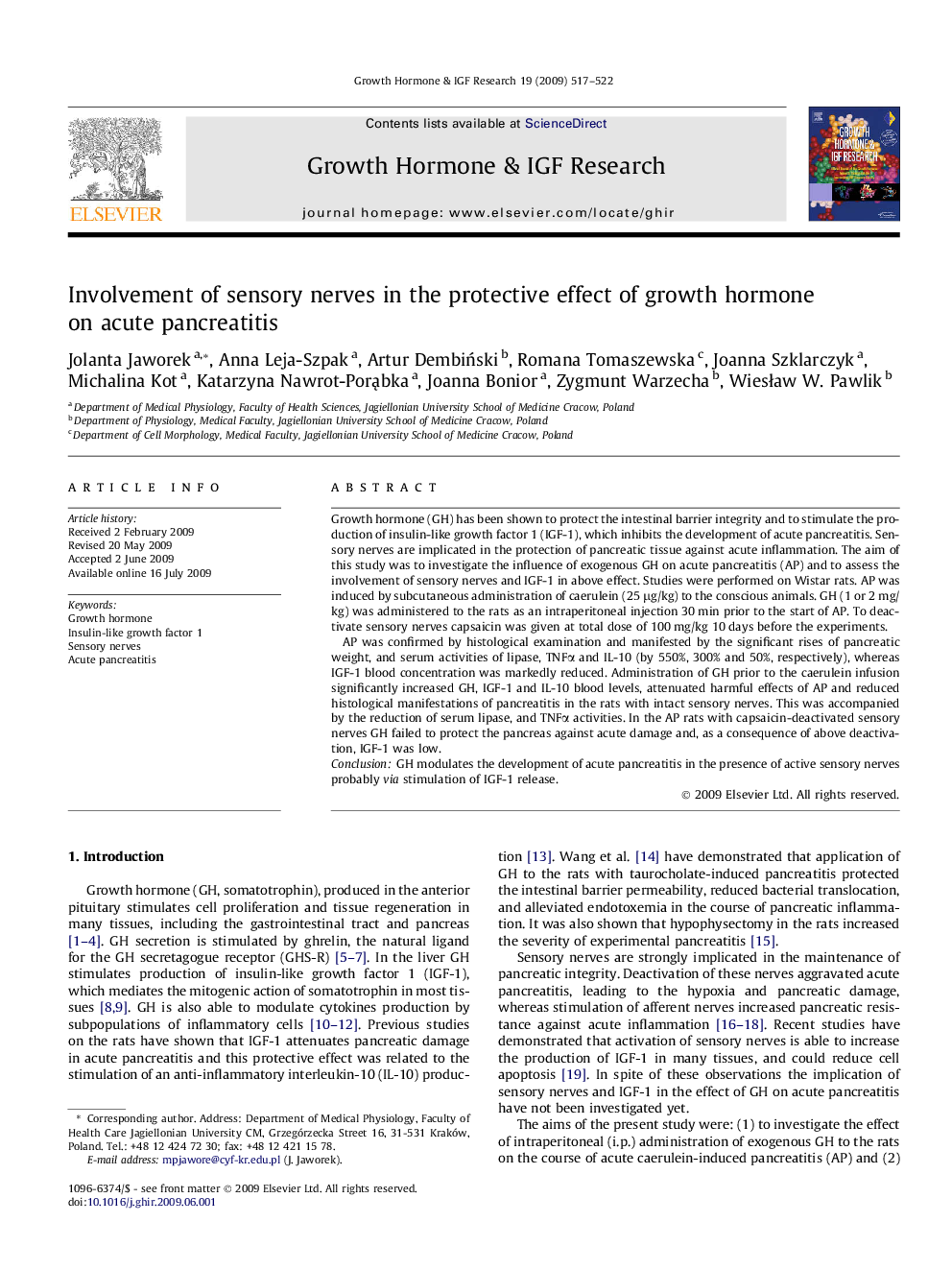| Article ID | Journal | Published Year | Pages | File Type |
|---|---|---|---|---|
| 2803089 | Growth Hormone & IGF Research | 2009 | 6 Pages |
Growth hormone (GH) has been shown to protect the intestinal barrier integrity and to stimulate the production of insulin-like growth factor 1 (IGF-1), which inhibits the development of acute pancreatitis. Sensory nerves are implicated in the protection of pancreatic tissue against acute inflammation. The aim of this study was to investigate the influence of exogenous GH on acute pancreatitis (AP) and to assess the involvement of sensory nerves and IGF-1 in above effect. Studies were performed on Wistar rats. AP was induced by subcutaneous administration of caerulein (25 μg/kg) to the conscious animals. GH (1 or 2 mg/kg) was administered to the rats as an intraperitoneal injection 30 min prior to the start of AP. To deactivate sensory nerves capsaicin was given at total dose of 100 mg/kg 10 days before the experiments.AP was confirmed by histological examination and manifested by the significant rises of pancreatic weight, and serum activities of lipase, TNFα and IL-10 (by 550%, 300% and 50%, respectively), whereas IGF-1 blood concentration was markedly reduced. Administration of GH prior to the caerulein infusion significantly increased GH, IGF-1 and IL-10 blood levels, attenuated harmful effects of AP and reduced histological manifestations of pancreatitis in the rats with intact sensory nerves. This was accompanied by the reduction of serum lipase, and TNFα activities. In the AP rats with capsaicin-deactivated sensory nerves GH failed to protect the pancreas against acute damage and, as a consequence of above deactivation, IGF-1 was low.ConclusionGH modulates the development of acute pancreatitis in the presence of active sensory nerves probably via stimulation of IGF-1 release.
